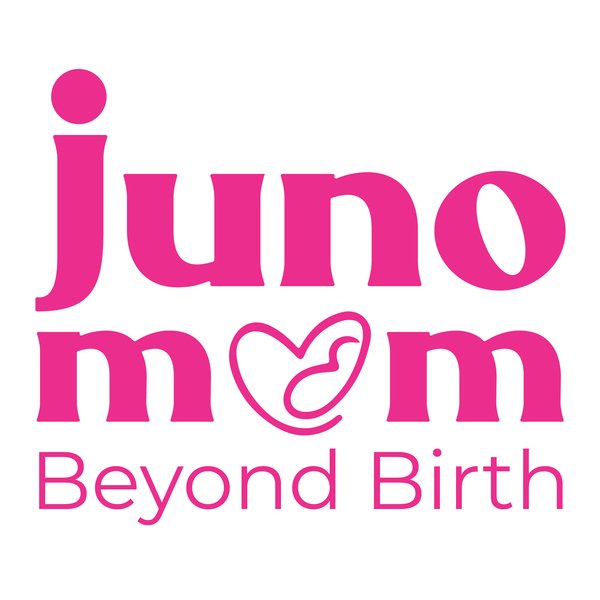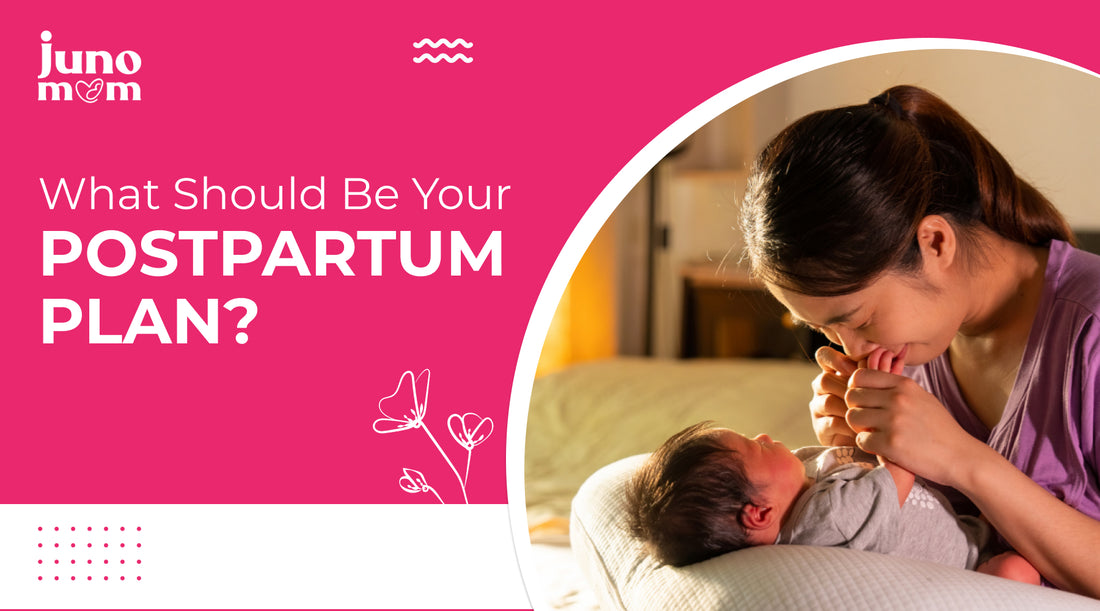The postpartum period is as important as childbirth itself. It’s a phase where your body heals, your emotions fluctuate, and you navigate your new role as a mother. Having a thoughtful postpartum plan can make this transition smoother. Whether it’s about managing breastfeeding challenges, deciding chores distribution with your partner, understanding postpartum red flags, or setting aside time for self-care, a plan helps ensure that you and your baby are well-cared for.
Let’s explore how you can prepare for this essential recovery journey.
1. Immediate Postpartum Needs
The first few weeks after childbirth require extra attention. You need it as much as the baby does. Here’s what you’ll need:

-
Essentials for Comfort: Stock up on comfortable clothing, your everyday essentials, and a postpartum care kit. These will help manage bleeding, soreness, and healing. When you’re in the hospital and back home, this stock will help you for a few weeks and you do not have to worry about restocking.
-
Rest and Recovery: Allow your body to heal by getting as much rest as possible. This is especially important after a vaginal or cesarean birth. Take smaller steps and you will be able to regain your energy over time.
- Breastfeeding Support: Prepare for breastfeeding by having nursing bras, breast pads, and a supportive environment. Remember, it’s okay to seek help if feeding is challenging. It is your first time doing all this and it will take some time for you to handle it better. Make sure if breastfeeding becomes difficult, you must get in touch with a latching consultant.
2. Physical Recovery
Postpartum recovery is a gradual process. It will take up to a maximum of 6 months to get back to your older self. You need constant support in the initial days and eventually your healing begins.

-
Healing Stitches: If you had a vaginal delivery with stitches or a C-section, follow your doctor’s care advice. Perineal wipes or ice packs can ease discomfort. For your C-section recovery, you must take care of your scars until healed fully.
-
Postpartum Bleeding: Expect bleeding, called lochia, for a few weeks. Maternity pads are a must-have during this time. Keep a full stock so that you don’t have to worry later. You can also use a pad fixator for no leakages.
- Gentle Exercises: Begin with light movements like walking to promote circulation. Your postpartum recovery journey will gradually allow you to regain strength.
3. Emotional and Mental Health
Your mental well-being is just as important as your physical health.

-
Postpartum Blues: Feeling emotional is common due to hormonal changes. But if you consistently do not feel normal, talk to the people around you.
-
Seek Support: Talk to loved ones about how you’re feeling. If the sadness persists, it may be a sign of postpartum depression. Don’t hesitate to consult a professional.
- Mindful Practices: Simple activities like journaling or deep breathing can help manage stress. You can start at your pace and take it slow.
4. Nutrition and Hydration
Your diet plays a big role in healing and energy levels. What you eat is what your body shows as an output.

-
Eat Balanced Meals: Include iron-rich foods, whole grains, and fresh vegetables. These support your recovery and lactation.
-
Stay Hydrated: Drink plenty of water, especially if you’re breastfeeding. Herbal teas can also be soothing.
- Small, Frequent Meals: This approach helps you stay energized throughout the day. Take smaller meals, more frequently it keeps your portions full throughout the day.
5. Newborn Care Preparation
Preparing for your baby’s needs reduces stress. If you have everything on hand

-
Diapers and Wipes: Keep plenty on hand. Stock it beforehand, and stay relaxed.
-
Feeding Essentials: Whether you’re breastfeeding or bottle-feeding, have the necessary supplies ready for your latching and milk supplies.
- Soothing Aids: Swaddles and pacifiers can comfort your baby. Keep all the baby necessities ready.
6. Setting Up a Support System
Caring for a newborn is a full-time job, and help goes a long way. You will need support on this journey and you can’t deal with it all alone.

-
Divide Tasks: Ask loved ones to help with household chores or cooking.
-
Postpartum Doula: Consider hiring a professional if you need extra support during your recovery. It will help in easing your everyday tasks.
- Partner Involvement: Encourage your partner to share responsibilities, from diaper changes to bedtime routines. This will help you both bond better with the baby.
7. Self-Care is Non-Negotiable
Taking care of yourself is part of postpartum care. It is one of the most essential steps of postpartum care.

- Nap whenever you get time, even if it’s just for a short while.
- Treat yourself to warm baths or soothing music to unwind.
- Whether it’s mastering a feeding technique or getting through a tough day, acknowledge your progress.
- Take care of your skin, hair and body overall.
8. Recognizing Postpartum Red Flags
It’s crucial to know when to seek medical help.
- Passing large clots or soaking pads quickly is a sign to call your doctor.
- Fever, severe pain, or foul-smelling discharge should not be ignored.
-
Persistent feelings of sadness, anxiety, or detachment from your baby are serious and need professional attention.
Any of these symptoms are a sign of medical assistance.
Conclusion
Your postpartum plan is your guide to a healthier recovery. You can make this period smoother by focusing on essentials like physical care, and emotional support, and recognizing red flags. Remember, every journey is unique, and asking for help is okay. Take one step at a time—you’re doing great!


